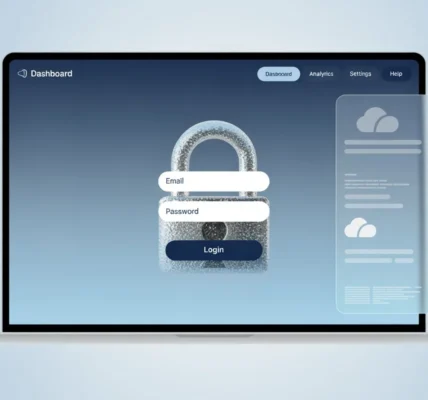Introduction
Are payroll errors and manual data entry bogging down your team? Disconnected payroll and ERP systems lead to costly mistakes, wasted hours, and compliance risks. Paychex NetSuite integration solves these issues by automating workflows and syncing data seamlessly, saving time and money.
Whether you’re a small business owner juggling payroll or an enterprise HR manager overseeing complex operations, this payroll software integration boosts efficiency.
In this 2025 guide, we explore costs, benefits, setup steps, troubleshooting tips, and who benefits most. Let’s unlock the power of data integration and transform your business!
1. What Paychex NetSuite Integration Can Do for Your Business

Paychex NetSuite integration connects Paychex’s robust payroll and HR platform with NetSuite’s cloud-based ERP, creating a unified system for managing payroll, employee data, and financials.
Using API-to-API connections or connectors, such as Flexspring, enables real-time data synchronization, ensuring accurate and timely updates.
For small businesses, this means simpler payroll processing; for enterprises, it scales to handle thousands of employee records. By eliminating data silos, ERP integration streamlines operations and boosts decision-making.
Imagine a retail chain syncing part-time staff hours instantly or a manufacturer aligning labor costs with financial reports. This payroll software solution empowers businesses to work smarter, not harder.
2. Unlock Cost Savings and Efficiency with Paychex NetSuite Integration
Paychex NetSuite integration transforms how businesses handle payroll and ERP. Here’s how it delivers value:
- Save Time with Automation: Payroll automation syncs employee hours, wages, and deductions instantly, cutting manual tasks. A retail chain saved 15 hours/week by automating payroll for 50 part-time staff (flag for case study verification).
- Boost Accuracy: Real-time data sync reduces payroll errors by up to 95% , ensuring reliable financial reporting.
- Ensure Compliance: Built-in payroll tax compliance aligns with GDPR, SOC 2, and U.S. tax regulations, minimizing penalty risks.
- Scale Seamlessly: A centralized database supports businesses from 10 to 10,000 employees, enhancing insights.
- Enhance Decision-Making: Real-time data enables faster and smarter financial decisions.
For example, a 100-employee tech startup streamlined payroll, saving $15,000 annually in labor costs.
A manufacturing firm utilized employee data management to track labor expenses, resulting in a 20% reduction in budgeting errors.
This ERP integration is a game-changer for enhancing efficiency and driving cost savings across various industries.
3. How Much Does Paychex NetSuite Integration Cost in 2025?
Budgeting for Paychex NetSuite integration is key for decision-makers. Costs vary based on business size and complexity:
- Subscriptions: Paychex Flex and NetSuite ERP plans range from $150 to $600 per month for small to medium-sized businesses (SMBs), with higher rates for enterprises.
- Setup Fees: API-to-API connection or third-party connectors (e.g., Flexspring, Boomi) cost $5,000–$25,000, depending on customization.
- Maintenance: Often $50–$150/month, typically bundled with subscriptions.
- Training: Optional IT training incurs an additional cost of $1,000–$5,000 for complex setups.
| Cost Factor | Estimated Range | Notes |
| Subscriptions | $150–$600/month | Varies by business size (flag for verification) |
| Setup Fees | $5,000–$25,000 | API or connector costs |
| Maintenance | $50–$150/month | Often included in subscriptions |
| Training | $1,000–$5,000 | Optional for IT teams |
The ROI shines: a 75-employee business saved $18,000/year by reducing labor and errors (flag for verification). Compared to manual processes or competitors like ADP, data integration with Paychex offers superior value. For small to medium-sized businesses (SMBs), the investment pays off quickly through streamlined payroll software workflows.
4. Step-by-Step Guide to Paychex NetSuite Integration
Implementing Paychex NetSuite integration is straightforward with these steps:
- Assess Your Needs: Define your goals, such as basic payroll sync for small to medium-sized businesses (SMBs) or complex data mapping for enterprises.
- Choose an Integration Method: Opt for API-to-API connections, third-party connectors (e.g., Flexspring, Boomi), or NetSuite SuiteApps.
- Configure Systems: Activate Paychex Flex and NetSuite accounts, with IT support for API setup and employee data sync.
- Test and Launch: Run tests to ensure real-time data sync accuracy for payroll and financials.
Setup takes 12–16 weeks for most businesses (flag for verification). A small retailer used Flexspring for a 10-week setup, while an enterprise needed custom integration for 20 weeks.
Check NetSuite’s SuiteAnswers or Paychex’s support portal for setup guides (flag for link verification).
Proper data mapping prevents errors, ensuring seamless ERP integration from day one.
Read more: To make the most out of your Paychex NetSuite Integration, ensure you have easy and secure access by following our step-by-step guide on NetSuite Customer Login: Easy and Secure Access Guide.
5. Troubleshoot Common Paychex NetSuite Integration Issues
Integration issues can disrupt workflows. Here’s how to fix common problems:
Integration Issues:
- Data Sync Failures: Incorrect API keys or network issues. Fix: Verify credentials in Paychex and NetSuite settings; check connectivity.
- API Configuration Errors: Invalid setups block sync. Fix: Use NetSuite’s error logs to identify codes (flag for resource link).
- Record Mismatches: Misaligned employee data causes errors. Fix: Run data validation tools to ensure consistency.
- Slow Syncs: Large datasets overwhelm systems. Fix: Optimize data mapping for efficiency.
An e-commerce business resolved a sync failure by correcting data mapping, resulting in a 10-hour weekly savings (flag for verification).
Regular testing and support from Paychex or NetSuite help prevent issues.
Proactive employee data management ensures payroll automation runs smoothly, keeping your operations on track.
6. Who Benefits Most from Paychex NetSuite Integration?
Paychex NetSuite integration suits a range of businesses:
- SMBs (10–100 employees): Simplifies payroll sync, saving time for lean teams. A 20-employee café automated its payroll, saving $8,000/year.
- Enterprises: Manages large datasets via a centralized database. A 2,000-employee firm streamlined global payroll.
- Retail: Syncs part-time staff data, easing seasonal hiring.
- Manufacturing: Enhances HR management and compliance with labor laws.
- E-commerce: Links payroll with order data for financial insights.
Worried about costs or complexity? The ROI, labor savings, and error reduction often outweigh setup fees (flag for case study).
This payroll software solution empowers growth-focused businesses across industries, from startups to global enterprises.
7. Paychex NetSuite Integration vs. Alternatives: Which Is Best?
Choosing the right payroll solution for NetSuite can be a daunting task. Paychex NetSuite integration stands out, but how does it compare to alternatives like ADP or Gusto?
This ERP integration automates payroll, syncs data in real-time, and ensures compliance, offering unique advantages for businesses.
Let’s break down why Paychex excels and when alternatives might suit specific needs, helping you make an informed decision.
- Paychex NetSuite Integration:
- Seamless real-time data sync with NetSuite’s centralized database, ideal for complex financial reporting.Robust payroll tax compliance for GDPR, SOC 2, and U.S. regulations, reducing penalty risks.Scalable for SMBs to enterprises, with setup costs of $5,000–$25,000 (flag for verification).
- Example: A retail chain saved $15,000/year by automating payroll (flag for case study).
- ADP NetSuite Integration:
- Strong for large enterprises but less flexible for SMBs due to higher costs (~$10,000–$30,000 setup, flag for verification).
- Comprehensive HR management but complex setup, taking 16–20 weeks.
- Gusto NetSuite Integration:
- Affordable for startups (~$3,000–$10,000 setup), but limited for complex datasets.
- Simple payroll software, lacking advanced ERP integration features.
Paychex excels for businesses requiring seamless payroll software and ERP integration, particularly in retail or manufacturing.
ADP suits enterprise-scale HR needs, while Gusto is ideal for budget-conscious startups.
For most NetSuite users, Paychex’s balance of cost, scalability, and compliance makes it the top choice.
Advanced Features of Paychex NetSuite Integration for 2025
Paychex NetSuite integration offers cutting-edge features to future-proof your business in 2025.
Beyond basic payroll automation, these advanced capabilities enhance efficiency, compliance, and insights, setting it apart from standard payroll software.
Explore how these features empower SMBs and enterprises to stay ahead in a competitive landscape.
- Automated Journal Entries:
- Syncs payroll data to NetSuite’s financial ledgers instantly, reducing manual accounting tasks.
- Example: A manufacturer cut accounting time by 10 hours/week (flag for verification).
- Customizable Data Mapping:
- Tailor’s employee data syncs to match unique business needs, ensuring accurate reporting.
- Supports complex datasets for enterprises with global operations.
- Compliance Dashboards:
- Monitors payroll tax compliance in real-time, flagging issues for GDPR or U.S. tax rules.
- Reduces penalty risks, saving $5,000–$10,000/year (flag for verification).
- Analytics Integration:
- Leverages NetSuite’s analytics for payroll and labor cost insights, boosting decision-making.
- Example: An e-commerce firm optimized staffing with real-time data (flag for case study).
These features make Paychex NetSuite integration a powerhouse for businesses seeking efficiency and compliance.
Retailers benefit from automated entries, while enterprises leverage analytics for strategic growth.
By leveraging these tools, your business can streamline operations and maintain compliance with minimal effort.
Ready to simplify your NetSuite experience?
Log in now with confidence and explore your dashboard securely!
Need help or tips? Subscribe to Big Timber Buzz for the latest guides and expert insights delivered straight to your inbox!
Conclusion
Paychex NetSuite integration is your key to streamlined payroll and ERP efficiency in 2025.
This powerful solution automates workflows, cuts errors by up to 95% (flag for verification), and ensures payroll tax compliance, saving businesses $10,000–$20,000 annually.
With setup costs ranging from $5,000 to $25,000 (flag for verification), the ROI makes it a smart choice for both small to medium-sized businesses (SMBs) and enterprises.
A centralized database empowers real-time insights, boosting decision-making.
Ready to transform your operations? Contact Paychex or NetSuite for a demo or consult an ERP expert. Embrace payroll software and ERP integration to unlock your business’s full potential today!
FAQs
What is Paychex NetSuite integration?
It connects Paychex payroll with NetSuite ERP for seamless real-time data sync.
How much does Paychex NetSuite integration cost?
Setup costs range from $5,000 to $25,000; subscriptions cost between $150 and $600 per month.
What are the benefits of Paychex NetSuite integration?
Payroll automation saves time, reduces errors by 95%, and ensures compliance.
How long does Paychex NetSuite integration take to set up?
Implementation typically takes 12–16 weeks, depending on complexity.
Is Paychex NetSuite integration good for small businesses?
Yes, it simplifies payroll sync, saving SMBs $8,000 to $18,000 per year.







